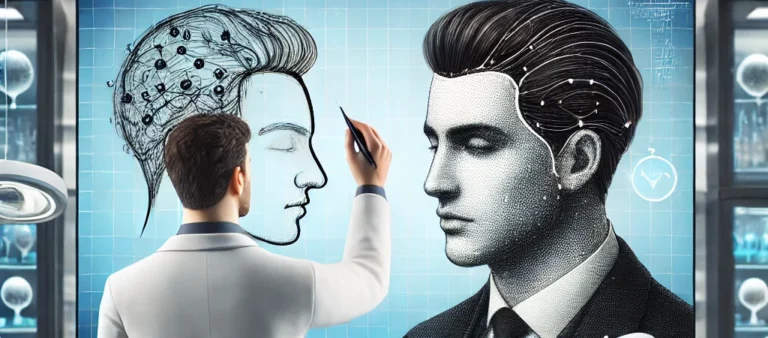Technology has always been a driving force behind societal transformation. From the invention of the wheel to the development of the internet, each technological advancement has reshaped the way we live, work, and interact. As we move further into the 21st century, several cutting-edge innovations are poised to revolutionize our lives once again. In this article, we will explore seven tech innovations that have the potential to reshape our world and the way we experience it.
Artificial Intelligence (AI) and Machine Learning
Artificial Intelligence (AI) and Machine Learning (ML) have already made significant impacts in various fields, and their influence is only set to grow. AI-powered systems can analyze vast amounts of data and provide valuable insights, leading to breakthroughs in healthcare, finance, transportation, and more. From diagnosing diseases to predicting traffic patterns, AI and ML will revolutionize decision-making processes, making them faster, more accurate, and more efficient.
Internet of Things (IoT)
The Internet of Things (IoT) refers to the network of interconnected devices that can communicate and exchange data with each other. As IoT technology becomes more advanced and widespread, it will transform our homes, cities, and industries. Smart homes will enable us to control and monitor various devices remotely, optimizing energy consumption and enhancing security. In smart cities, IoT will facilitate better traffic management, waste management, and resource allocation. Moreover, IoT-enabled industries will experience improved efficiency, predictive maintenance, and streamlined logistics.
Virtual and Augmented Reality (VR/AR)
Virtual Reality (VR) and Augmented Reality (AR) technologies are poised to revolutionize the way we perceive and interact with the world around us. VR creates immersive, computer-generated environments that can be used for entertainment, training simulations, and even therapy. AR overlays digital information onto the real world, enhancing our understanding and experience of physical spaces. From gaming and education to healthcare and design, VR and AR will redefine how we learn, entertain ourselves, and solve complex problems.
Blockchain Technology
Originally known for its association with cryptocurrencies like Bitcoin, blockchain technology has far-reaching implications beyond finance. A blockchain is a decentralized and transparent digital ledger that securely records and verifies transactions. Its decentralized nature eliminates the need for intermediaries, making processes more efficient, secure, and trustworthy. Blockchain has the potential to transform industries such as supply chain management, healthcare, voting systems, and intellectual property protection, by enhancing transparency, reducing fraud, and improving data integrity.
5G Connectivity
The fifth-generation (5G) wireless technology promises lightning-fast speeds, ultra-low latency, and massive connectivity. It will enable faster downloads, seamless streaming, and support for emerging technologies like autonomous vehicles and smart cities. 5G’s high bandwidth and low latency will revolutionize industries such as healthcare, manufacturing, and remote work. It will enable real-time remote surgeries, remote monitoring of machines, and immersive teleconferencing experiences. The widespread adoption of 5G will pave the way for a more interconnected and digitized world.
Renewable Energy Technologies
As the world grapples with climate change, renewable energy technologies offer a glimmer of hope. Innovations in solar, wind, hydro, and geothermal power generation have already made significant strides. With further advancements, renewable energy sources will become more affordable, efficient, and accessible. This will accelerate the transition towards a sustainable future, reducing carbon emissions and dependence on fossil fuels. Smart grids and energy storage technologies will play a crucial role in managing and distributing renewable energy, creating a more resilient and decentralized energy infrastructure.
Biotechnology and Genetic Engineering
The field of biotechnology and genetic engineering holds immense potential to revolutionize healthcare, agriculture, and environmental conservation. Breakthroughs in gene editing techniques like CRISPR-Cas9 enable precise modifications in the genetic code, opening doors to personalized medicine and disease eradication. In agriculture, genetically modified crops can be engineered to withstand harsh environmental conditions and increase yields, ensuring food security. Biotechnology also offers promising solutions for tackling pollution, such as the development of microbial enzymes that break down plastic waste. These advancements will reshape our approach to healthcare, food production, and environmental sustainability.
Conclusion
As technology continues to evolve at an unprecedented pace, these seven tech innovations are set to reshape the way we live, work, and interact with our world. From the power of AI and ML to the immersive experiences provided by VR and AR, these innovations hold tremendous potential for positive change. Embracing these technologies responsibly and ethically will be crucial as we navigate the transformative impact they will have on our society. By harnessing the power of these innovations, we can build a future that is more efficient, sustainable, and inclusive.




